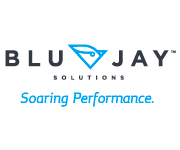 |
|||||||||||||||||
| Archive | Subscribe | Printer Friendly | Send to a Friend | cscmp.org | |||||||||||||||||
|
Current News
Connect
Training and Development
The Equifax breach has already provided lessons on many fronts: the devastating effects of lax security, the role of corporate culture in securing an enterprise, and the importance of well-planned and tested incident response. Now, there’s a new lesson – the impact of third-party cybersecurity risks.
Equifax just confirmed that despite the intense international focus on the company since early September, it has suffered another breach of its online systems. "The issue involves a third-party vendor that Equifax uses to collect website performance data, and that vendor’s code running on an Equifax website was serving malicious content," Equifax said in a statement. The revelation highlights the very real fact that third-party connections to corporate networks can create vulnerabilities to be exploited. It also demonstrates that even if a third party is the source of a breach or attack, the company itself will still suffer negative attention, and possibly reputational and financial loss. Supply chain assurance in today’s globally-sourced and increasingly connected environment requires the management of emerging risks, especially cyber threats. With the internet of things (IoT), move to the cloud, and increasing reliance on third parties for products and processes, ALL supply chain professionals have a stake in recognizing and mitigating cyber risk. Did the department that secured the website tracking solution for Equifax involve Procurement, Legal, IT, or Risk decision-makers? Does Equifax assess the security posture of third-party vendors or require them to meet corporate security standards? Does it have a governance plan to monitor and mitigate problems? If Equifax is like many businesses, it does not. Click "Learn More" to keep reading. Edge Conference
Every year following CSCMP's annual conference, attendees take to digital platforms to share their feedback, insights and overall experiences at EDGE.
A CSCMP member happened across the below post from one of this year's Future Leaders, and it was so inspiring, we had to track this young professional down and ask to share his words here. Daniel Cremer, thank you for sharing your feedback. Click "Learn More" to read the post. Roundtables
The roundtable community came together in full force during the EDGE Conference on Sept. 24-27, in Atlanta, GA. From the luncheon to the receptions and meetings—here’s a look at all of the exciting moments.
The EDGE Conference attracts supply chain management professionals from around the world and this year in Atlanta was no different! Our international roundtable leaders from Spain, Germany, Benelux, Sweden, UK, Brazil, The Netherlands, Italy, China and Peru gathered for lunch and discussed their challenges and opportunities. The Atlanta Roundtable stepped up to welcome everyone to their wonderful city by hosting a private reception for the roundtable officers. The winners of the 2017 Global Challenge were flown in to be recognized on stage at the Tuesday morning general session. The challenge, sponsored by APL Logistics, included four international teams competing in a supply chain simulation game. Every year the roundtable community steps up to give the next generation of supply chain leaders an opportunity to experience the conference as a volunteer and supportive staff. The Future Leaders program, formerly known as Student Assistants, had many bright and promising students from all over the world participating. Keep reading for upcoming roundtable events. |
|||||||||||||||||







